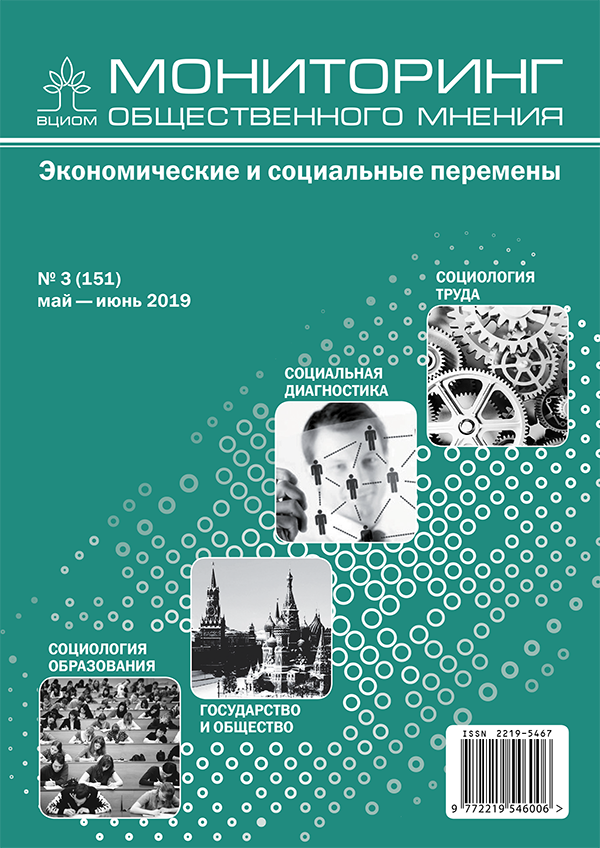Социальное значение времени в семье с детьми (на примере многодетных семей)
DOI:
https://doi.org/10.14515/monitoring.2019.3.14Ключевые слова:
время в семье, многодетные семьи, множественное время, баланс жизни и работы, социальное времяАннотация
Значительная часть существующих исследований о времени выполнена в «ресурсной» логике: время понимается как ограниченный ресурс, который может быть распределён между разными видами деятельности. В рамках данной работы предпринимается попытка рассмотрения альтернативного подхода к изучению времени: время будет определяться через его социальные значения. Статья базируется на анализе глубинных интервью с многодетными родителями, собранными в Москве, Архангельске и Владимире. Фокусирование на таком объекте исследования обуславливается спецификой семейной жизни: именно в семьях с детьми обостряется вопрос о балансе жизни и работы ввиду потребности в поиске равновесия интересов разных членов семьи. Анализ данных позволяет выделить три типа социального времени в семье (институциональное, гендерное, межличностное), а также выявить категорию «дискурс о времени». Институциональное время – это изменение темпоральности семьи под воздействием внешних факторов. К ним относятся режим работы общественных институтов и этические нормы. Гендерное время проясняет различия между мужским и женским временем в семье, при этом разная «количественная» вовлеченность мужчин и женщин в домашние дела не означает содержательную разницу в распределении обязанностей. Межличностное время – совокупность способов организации времени для обеспечения межличностного взаимодействия в семье. Иначе говоря, создание условий для совместного семейного времяпрепровождения (семейное время), общения родителей без детей (время родителей) и с каждым ребёнком в отдельности (индивидуальное детское время), а также возможность для занятия своими делами и увлечениями (время на себя). Категория «дискурс о времени» отражает, как и что люди говорят о времени. Для многодетной семьи значимым является планирование, в том числе и для высвобождения межличностного времени. Полученные результаты позволяют обосновать возможность рассмотрения семейной жизни в категориях социальных значений времени.
Благодарность. Исследование выполнено за счет гранта Российского научного фонда (проект № 18-78-10089). Организация выполнения проекта — Православный Свято-Тихоновский гуманитарный университет.






